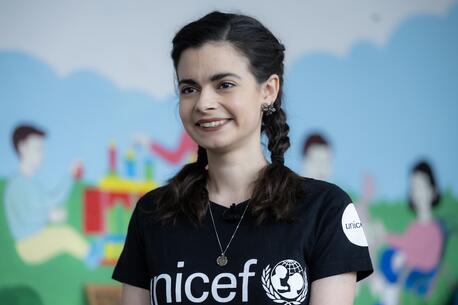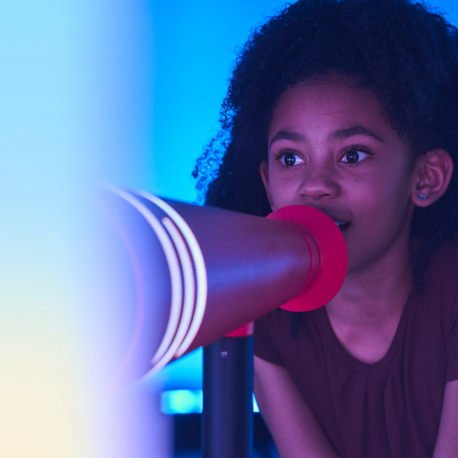A second chance at education in Ecuador
The auditorium of the high school in the heart of Quito, Ecuador, was sparse. Beyond a regal painting of Simon Bolivar displayed prominently on stage and a few posters, the room was unadorned, belying the incredible scene we were about to witness. We were there on a visit to learn more about UNICEF-supported programs in Ecuador. The eight of us sat in a row at the front of the room, facing dozens of students—mostly 18 years and older—who had previously dropped out of school and were now returning to finish their education. They were participating in a UNICEF-supported Fast Track Initiative, where they were able to complete three years of school in only one rigorous year, helping them catch up to their peers.
Jeremy Cole is a Major Gifts Officer at the U.S. Fund for UNICEF.
The auditorium of the high school in the heart of Quito, Ecuador, was sparse. Beyond a regal painting of Simon Bolivar displayed prominently on stage and a few posters, the room was unadorned, belying the incredible scene we were about to witness.
We were there on a visit to learn more about UNICEF- supported programs in Ecuador. The eight of us sat in a row at the front of the room, facing dozens of students—mostly 18 years and older—who had previously dropped out of school and were now returning to finish their education. They were participating in a UNICEF-supported Fast Track Initiative, where they were able to complete three years of school in only one rigorous year, helping them catch up to their peers.
One by one, the students rose, testifying to the incredible challenges they had faced: absent fathers and mothers, extreme poverty, disability, pregnancy, family illiteracy. But, incredibly, they did not complain; rather, they spoke of the hope and gratitude they felt for this program, which gave them the opportunity to make a life for themselves. One by one, these students began with strong voices but ended haltingly and in tears as they expressed their gratitude for the support they were receiving and shared their aspirations for a better future.
More than anything else, I was struck by the raw and shared humanity of these testimonies: the past struggles, the desire to be gracious in the face of life’s extreme challenges, and the unending hope for a better life. I was also struck by the students’ willingness to speak openly about the pain, richness and hopes of their lives to a group of perfect strangers from a foreign country.
It was in this moment that I saw the human face of UNICEF’s relentless work for the survival and rights of children. Here, in this auditorium, I saw children being supported as they took measure of themselves and opened up to possibility in the face of long odds. It was clear from this visit how UNICEF’s work is deeply rooted in a commitment to the spirit, hope and courage of a child, and to his or her capacity to find and share grace, no matter the circumstance. This capacity is not particularly easy to measure, but it is impossible to miss.
Toward the end of the program, Carlos—a young man in a wheelchair—took the floor. He began by thanking his teachers and those who have supported this program, while lamenting the fact that the school was still not handicap accessible. Like many of the other students, he was slowly overwhelmed by tears, unable to finish.
As we were walking out, I wondered to myself how Carlos was able to get around the school. I came to the top of a set of stairs and ran into Carlos on his way back to class. It seemed there was nowhere for him to go. From behind us came two students who, without hesitation or words, picked up Carlos’ wheelchair and carried him down the stairs. When he came to a locked door, another group of students opened it for him. When he came to a second set of stairs, two more students lifted him.
It was at this moment that I was reminded that—despite the many challenges so many young people face in our world today—children have an incredible ability to help us recall our shared humanity.
Carlos and his friends reminded me that we cannot stop investing in the dreams, the spirit and the survival of children, who alone have the ability to build a better future for us all.



